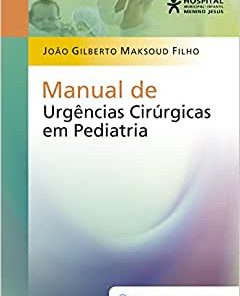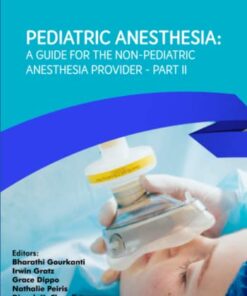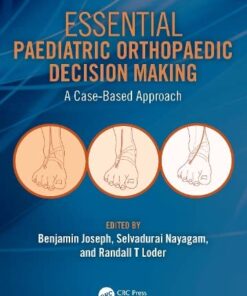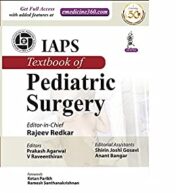Understanding Pediatric Surgery: What Parents Need to Know
Discover the Benefits of Pediatric Surgery
Pediatric surgery is a specialized field of medicine that focuses on the surgical care of infants, children, and adolescents. It involves a wide range of procedures, from simple operations to complex reconstructive surgeries. Pediatric surgeons are specially trained to provide the best possible care for their young patients. At its core, pediatric surgery is about providing the best possible outcome for children. It requires a unique combination of medical knowledge, technical skill, and compassion. Pediatric surgeons must be able to understand the needs of their young patients and their families, as well as the physical and emotional challenges they face. The benefits of pediatric surgery are numerous. It can help improve a child’s quality of life by correcting birth defects, treating chronic conditions, and improving overall health. It can also reduce the risk of complications and long-term disability. If you or your child is in need of pediatric surgery, it’s important to find a qualified surgeon who has experience in this field. To learn more about pediatric surgery and how it can help your family, visit DentalBooks.net.
.
PEDIATRIC SURGERY
PEDIATRIC SURGERY
Pediatric Epilepsy Surgery: Preoperative Assessment and Surgical Treatment, 2nd Edition (EPUB)
PEDIATRIC SURGERY
Manual de Urgências Cirúrgicas em Pediatria, 1st edition (Original PDF from Publisher)
PEDIATRIC SURGERY
PEDIATRIC SURGERY
PEDIATRIC SURGERY
Vascular Access in Neonates and Children (Original PDF from Publisher)
PEDIATRIC SURGERY
Hypospadias Surgery: An Illustrated Textbook, 2nd Edition (Original PDF from Publisher)
PEDIATRIC SURGERY
Pediatric Musculoskeletal Infections: Principles & Practice (Original PDF from Publisher)
PEDIATRIC SURGERY
PEDIATRIC SURGERY
PEDIATRIC SURGERY
Pediatric Surgery: Diagnosis and Treatment, 2nd Edition (EPUB)
PEDIATRIC SURGERY
Pediatric Surgery: Diagnosis and Treatment, 2nd Edition (Original PDF from Publisher)
PEDIATRIC SURGERY
PEDIATRIC SURGERY
Pediatric Head and Neck Textbook: Pathology, Surgery and Imaging (Original PDF from Publisher)
PEDIATRIC SURGERY
Pediatric Orthopedics for Primary Healthcare: Evidence-Based Practice (Original PDF from Publisher)
PEDIATRIC SURGERY
PEDIATRIC SURGERY
Congenital and Acquired Deformities of the Pediatric Shoulder Girdle (Original PDF from Publisher)
PEDIATRIC SURGERY
Handbook of Pediatric Surgery, 2nd Edition (Original PDF from Publisher)
PEDIATRIC SURGERY
PEDIATRIC SURGERY
Holcomb y Ashcraft. Cirugía pediátrica 7th Edition 2021 Original pdf
PEDIATRIC SURGERY
PEDIATRIC SURGERY
PEDIATRIC SURGERY
All Around the Nose Basic Science, Diseases and Surgical Management 2020 ORIGINAL PDF
PEDIATRIC SURGERY
Atlas of Operative Techniques in Primary Cleft Lip and Palate Repair 2020 ORIGINAL PDF
PEDIATRIC SURGERY
PEDIATRIC SURGERY
Foot and Ankle Surgery in Children and Adolescents (Original PDF)
PEDIATRIC SURGERY
Pediatric Surgery: General Pediatric Surgery, Tumors, Trauma and Transplantation (Original PDF)
Introduction
Understanding Pediatric Surgery: What Parents Need to Know is an essential guide for parents of children who may need surgery. This comprehensive guide provides information on the types of pediatric surgeries, the risks and benefits associated with them, and how to prepare for a successful outcome. It also offers advice on how to support your child before, during, and after surgery. With this knowledge, parents can make informed decisions about their child's care and ensure they receive the best possible treatment.
Overview of Pediatric Surgery: Types, Risks, and Benefits
Pediatric surgery is a specialized field of medicine that focuses on the surgical care of infants, children, and adolescents. It involves the diagnosis, treatment, and management of a wide range of conditions, from birth defects to trauma and cancer. Pediatric surgeons are specially trained to provide comprehensive care for children, taking into account their unique physical, emotional, and developmental needs.
The types of pediatric surgery vary depending on the condition being treated. Common procedures include hernia repair, appendectomy, tonsillectomy, circumcision, and cleft lip and palate repair. Other surgeries may be necessary to treat birth defects, such as congenital heart defects or spina bifida, or to correct deformities caused by trauma or disease. In some cases, pediatric surgeons may also perform organ transplants or reconstructive surgery.
As with any type of surgery, there are risks associated with pediatric surgery. These include infection, bleeding, and reactions to anesthesia. Additionally, some procedures may require long recovery times and involve significant lifestyle changes. However, the benefits of pediatric surgery can be life-changing. Surgery can help correct birth defects, improve quality of life, and even save lives.
When considering pediatric surgery, it is important to discuss all of the risks and benefits with your child’s doctor. Your doctor will be able to provide you with information about the procedure, the expected outcome, and any potential complications. With the right care and support, pediatric surgery can be a safe and effective way to improve your child’s health and well-being.
Preparing for a Pediatric Surgery: What to Expect
Preparing for a pediatric surgery can be a stressful experience for both the child and their family. It is important to understand what to expect before, during, and after the procedure so that everyone involved can feel more comfortable and prepared.
Before the surgery, the child’s doctor will likely perform a physical exam and order any necessary tests or imaging studies. The doctor may also discuss the risks and benefits of the procedure with the family. During this time, it is important to ask questions and voice any concerns.
The day before the surgery, the child should not eat or drink anything after midnight. This helps to ensure that the child does not have any food or liquids in their stomach during the procedure. The child should also take a bath or shower the night before the surgery to reduce the risk of infection.
On the day of the surgery, the child should arrive at the hospital or surgical center early. They will need to change into a hospital gown and may receive an IV line to provide fluids and medications. The child may also receive a sedative to help them relax before the procedure.
During the surgery, the child will be monitored closely by the medical team. The surgeon will make an incision and then perform the necessary procedure. Depending on the type of surgery, the child may be under general anesthesia or local anesthesia.
After the surgery, the child will be taken to a recovery room where they will be monitored until they are awake and alert. The child may experience some pain and discomfort, but this can usually be managed with medication. The child may also need to stay in the hospital for a few days to recover.
Preparing for a pediatric surgery can be a difficult experience, but understanding what to expect can help to ease some of the stress. It is important to talk to the doctor about any questions or concerns and to follow all pre-operative instructions carefully. With the right preparation, the child can have a safe and successful surgery.
Post-Surgery Care: Pain Management and Recovery
Post-surgery care is an important part of the recovery process. It involves managing pain, monitoring healing, and providing support to help patients return to their normal activities as quickly as possible. Pain management and recovery are two key components of post-surgery care.
Pain management is essential for a successful recovery. Pain can be managed with medications, physical therapy, and other treatments. Medications such as opioids, nonsteroidal anti-inflammatory drugs (NSAIDs), and muscle relaxants can be used to reduce pain and inflammation. Physical therapy can help improve range of motion and strength, while also reducing pain. Other treatments such as acupuncture, massage, and heat or cold therapy may also be beneficial.
Recovery is the process of returning to normal activities after surgery. This includes gradually increasing activity levels, following the doctor’s instructions, and taking time to rest and heal. It is important to follow the doctor’s instructions for activity level and to avoid any activities that could cause further injury or delay healing. It is also important to get plenty of rest and to eat a healthy diet to promote healing.
Post-surgery care is an important part of the recovery process. Pain management and recovery are two key components of post-surgery care. Medications, physical therapy, and other treatments can be used to manage pain, while gradually increasing activity levels and following the doctor’s instructions can help with recovery. Taking time to rest and heal, eating a healthy diet, and avoiding activities that could cause further injury are all important steps in the recovery process. With proper post-surgery care, patients can return to their normal activities as quickly and safely as possible.
Understanding the Role of Anesthesia in Pediatric Surgery
Anesthesia plays a critical role in pediatric surgery, as it is essential for the safety and comfort of the patient. Anesthesiologists are responsible for providing anesthesia to children undergoing surgery, and they must be highly trained and experienced in order to ensure that the child receives the best possible care.
The primary goal of anesthesiology in pediatric surgery is to provide safe and effective pain relief while minimizing any potential risks or complications. Anesthesiologists must be able to assess the child’s medical history, physical condition, and age in order to determine the most appropriate type of anesthesia. Depending on the procedure, general anesthesia, regional anesthesia, or local anesthesia may be used. General anesthesia is used when the entire body needs to be put to sleep, while regional anesthesia is used to numb a specific area of the body. Local anesthesia is used to numb a small area of the body.
Anesthesiologists must also be aware of the potential risks associated with anesthesia in pediatric surgery. These include allergic reactions, breathing problems, and changes in heart rate or blood pressure. In addition, anesthesiologists must be prepared to manage any unexpected events that may occur during the procedure.
Anesthesiologists must also be knowledgeable about the different types of medications used in pediatric surgery. These medications can include sedatives, muscle relaxants, and pain medications. Anesthesiologists must be familiar with the side effects of these medications and how to properly administer them.
Finally, anesthesiologists must be able to monitor the child’s vital signs throughout the procedure and be prepared to respond quickly if any changes occur. This includes monitoring the child’s heart rate, blood pressure, oxygen levels, and temperature.
Anesthesiologists play a vital role in pediatric surgery, and their expertise and experience are essential for ensuring the safety and comfort of the patient. They must be highly trained and knowledgeable in order to provide the best possible care for the child.
Communicating with Your Child's Surgeon: Questions to Ask
Communicating with your child’s surgeon is an important part of the process when it comes to making sure your child receives the best possible care. It is essential to ask questions and get answers that you understand in order to make informed decisions about your child’s health. Here are some questions to consider asking your child’s surgeon:
1. What is the diagnosis? Make sure you understand the diagnosis and what it means for your child’s health.
2. What are the treatment options? Ask about all available treatments, including any non-surgical options.
3. What are the risks and benefits of each option? Make sure you understand the potential risks and benefits of each option so you can make an informed decision.
4. How long will the surgery take? Knowing how long the surgery will take can help you plan for any necessary childcare or other arrangements.
5. What type of anesthesia will be used? Ask about the type of anesthesia that will be used and any potential side effects.
6. What should I expect during recovery? Ask about the expected recovery time and any special instructions you should follow.
7. Are there any lifestyle changes I should make? Ask if there are any lifestyle changes you should make to ensure a successful recovery.
8. What follow-up care is needed? Ask about any follow-up care that may be needed after the surgery.
9. What are the long-term implications of this surgery? Ask about any long-term implications of the surgery, such as any potential complications or side effects.
By asking these questions, you can ensure that you have all the information you need to make an informed decision about your child’s health. Communicating with your child’s surgeon is an important part of the process, and it is essential to ask questions and get answers that you understand.
Conclusion
Understanding pediatric surgery can be a daunting task for parents. However, it is important to be informed and prepared for the process. By researching the procedure, talking to your child's doctor, and understanding the risks and benefits of the surgery, you can make an informed decision about whether or not to proceed with the surgery. Additionally, it is important to ensure that your child is comfortable and safe throughout the entire process. With the right information and support, parents can feel confident in their decisions regarding pediatric surgery






























